Iranian Comedian Arrested On Suspected Sacrilege

Iranian comedian Zeinab Mousavi, known by her stage name Empress Kuzcooo and famous for her anti-regime stance, has reportedly been arrested.

Iranian comedian Zeinab Mousavi, known by her stage name Empress Kuzcooo and famous for her anti-regime stance, has reportedly been arrested.
It is suspected that Mousavi, a 32-year-old computer software graduate, has been charged with sacrilege since humor, even in the Islamic Republic, is not officially a crime. The Mizan News Agency, affiliated with the Iranian judiciary, announced the arrest of "an active lady in the virtual space who had insulted sacred values by producing content and publishing humorous videos."
The news of her arrest was announced on Monday. Empress Kuzcooo, a reference to the protagonist in Disney's 2000 animation Emperor's New Groove, is celebrated for her sharp humor and fearless criticism of clerics and politicians.
She has gained fame for breaking taboos by incorporating explicit sexual references in her stand-up routines. Operating from her hometown of Qom, known for being Iran's largest Shia seminary city, Mousavi earns her living through advertisements on her social media accounts, particularly on Twitter and Telegram.
In a recent video, Mousavi donned a Batman mask and satirized the Islamic Republic's propaganda regarding 'martyrdom' in Gaza, a move that might have triggered her arrest amid an Iran-backed war waged by its proxy Hamas against the regime's archenemy, Israel, broke out on October 7.
This is not the first time Mousavi has faced legal troubles for her activities. In October 2022, she was detained after participating in protests following the death of Mahsa Amini. A month later, reports emerged that she had been sentenced to two years in prison. Later, it was announced that she had been granted a pardon by the leader of the Islamic Republic.
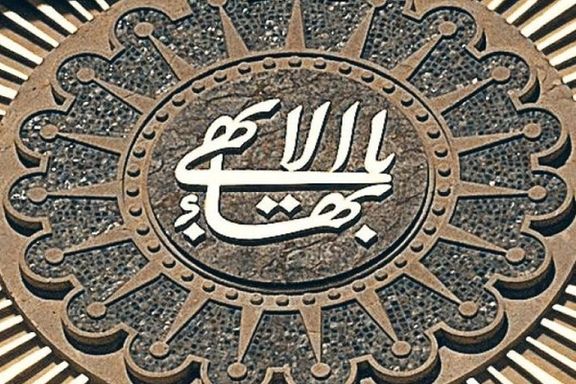
Agents of Iran’s ministry of intelligence have arrested 10 Baha'i women in the city of Esfahan (Isfahan) on Tuesday.
The detainees were apprehended at home following raids conducted by intelligence forces. They were transferred to an undisclosed location.
Additionally, during the searches of their residences, the agents confiscated personal belongings from the detainees and their families.
There have also been reports suggesting that intelligence agents have extended their operations by raiding the homes of numerous other Baha'i citizens in Esfahan, with the purpose of detaining them.
So far, no official information has been provided regarding the reasons behind the arrests or the specific charges brought against the arrested citizens.
The latest wave of arrests follows a backdrop of nationwide protests triggered by the murder of Mahsa Amini. The incident has ignited increased pressure on the Baha'i community from the regime of the Islamic Republic.
Members of the minority Baha'i faith face significant challenges in Iran, with the 1979 constitution officially recognizing only Islam, Christianity, Judaism, and Zoroastrianism. Baha'is are not afforded the same rights and protection.
Supreme Leader Ali Khamenei has previously referred to the Baha'i faith as a cult and, in 2018, issued a religious fatwa prohibiting contact, including business dealings, with Baha'i followers.
Iran is home to an estimated 300,000 Baha'is, who have consistently reported systemic violations of their rights, including harassment, forced displacement from their homes and businesses, and discrimination in areas such as government employment and higher education.
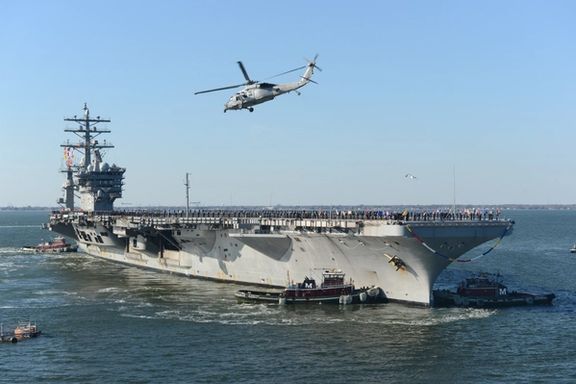
The White House on Monday adopted a much tougher tone on Iran’s role in the war between Israel and Hamas, and about attacks by Tehran’s proxies on US bases in the region.
US National Security Council Spokesman John Kirby speaking to CNN Monday evening did not rule out a direct military conflict with Iran, but tried to sidestep a direct question from host Wolf Blitzer on the possibility of a ‘war with Iran’.
“I think what we want to see more than anything is no widening of this conflict,” he said, “and we continue sending a strong message to the actors in the region, including Iran, that if you’re thinking about jumping in here, thinking about widening and deepening and escalating, don’t do it.”
Kirby’s warning to Iran and other actors in the Middle East is reminiscent of President Joe Biden’s remarks on the potential entry of other militant groups to the conflict between Israel and Hamas. Biden famously warned them, “don’t, don’t, don’t.”
Those being addressed by Biden and Kirby, however, seem to not be listening.
Officials from the Pentagon and the State Department have confirmed that attacks on American military bases in Syria and Iraq are on the rise.
Kirby did admit as much in the White House Press Briefing on Monday, only a few hours before his interview with Wolf Blitzer.
“Over the course of the last few days,” Kirby said, “we’ve seen an uptick in rocket and drone attacks by Iranian-backed proxy groups against military bases housing U.S. personnel in Iraq and Syria.”
It is an open secret that the Islamic Republic Guards Corps (IRGC) plays a prominent role in both Iraq and Syria. The regime’s officials boast about the IRGC’s involvement in the conflict and warn of escalation almost daily.
A report in the Sunday Times (October 22) suggested that “a series of volunteers from militias across the Middle East allied to Iran, particularly from #Iraq, have arrived on the Lebanese side of the border in the last two weeks.
Iran’s foreign minister Amir-Abdollahian issued a thinly veiled threat Sunday, saying “anything would be possible at any moment and the region will get out of control.”
Responding to the growing risk of a regional war, the US has sent two warships and anti-missile defense systems to the region.
Last week a squadron of B1b Lancer strategic bombers were moved from their Texas base to the Fairford base in Britain. The bomber can carry 50 tons of bombs and has enough range from Britain to Lebanon/Iran and back.
Despite the bellicose rhetoric from all sides, the reluctance to engage in a full-blown war is quite visible. But that could change any moment. An Israeli ground invasion of Gaza or a fatal attack on American bases in the region could take everyone over the brink.
So far, the civilians in Gaza and Israel have borne the brunt of the conflict.
At least 1400 Israelis were killed by Hamas forces on 7 October. And more than 5000 Palestinians have been killed in Israeli airstrikes since –including 2000 children.
Calls have grown in recent days for a brief humanitarian ceasefire, but Israel has made clear that it has no intention of doing so for now as it carries on its stated mission to eliminate Hamas.
The Biden administration is supportive of the Israeli stance. “This is not the time for ceasefire in Gaza,” said Kirby to CNN, not sidestepping the question as he had done with the question of a potential war with Iran.
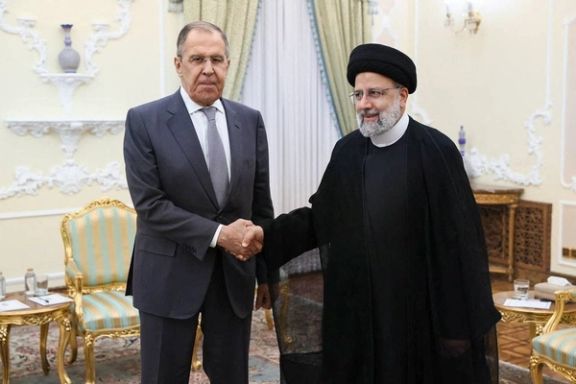
Russia and Iran are firming up relations in a 'trusting' atmosphere, Russia's foreign ministry said on Tuesday after its chief, Sergei Lavrov, met Iranian President Ebrahim Raisi in Tehran.
"In a traditionally trusting atmosphere, current aspects of the bilateral agenda were substantively discussed with an emphasis on further building up the entire complex of multifaceted Russian-Iranian partnership," the foreign ministry said in a statement on the Telegram messaging app.
Lavrov, who went to Tehran shortly after an Asia trip to China and North Korea, discussed energy and logistics projects with Iranian Foreign Minister Hossein Amir-Abdollahian.
As has been the Russian norm, few details of the talks, which took place amid the rising tensions in the Middle East, have been disclosed.
Lavrov also participated in regional talks hosted by Iran, aiming to bring peace to the South Caucasus region after Azerbaijani forces last month recaptured the breakaway region of Nagorno-Karabakh and forced thousands of ethnic Armenians to flee.
Since launching its full-scale invasion of Ukraine in February 2022, Moscow has sought to firm up ties with countries traditionally considered Western aligned, accusing "the collective West" of trying to break up Russia.
Ukraine has urged Tehran to stop supplying deadly drones to Russia, which Kyiv says have played a major role in Moscow's attacks on Ukrainian cities and infrastructure.
Iran initially denied supplying the Shahed kamikaze drones to Russia but later said it had provided a small number before Moscow launched the war.
The United States has said that it has been concerned by the "burgeoning defense partnership" between Iran and Russia, which poses risks not only to Ukraine but also to Iran's neighbors.
Reuters Report
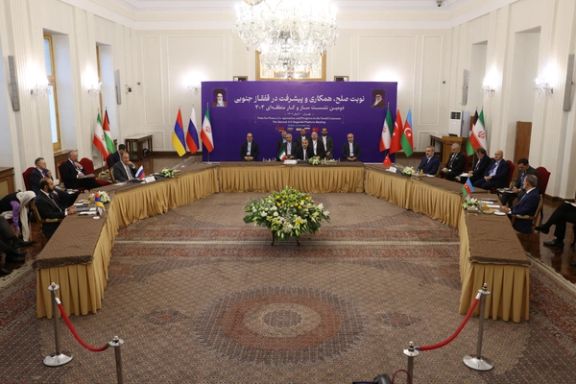
Iran hosted talks between the foreign ministers of Armenia and Azerbaijan on Monday, about a month after Baku recaptured the breakaway region of Nagorno-Karabakh.
Russian and Turkish foreign ministers also attended the second 3+3 regional platform summit, dubbed Time for Peace, Cooperation, and Progress in the South Caucasus. The first 3+3 meeting was held in Moscow in December 2021 at the level of deputy foreign ministers. Georgia was no present either of the events.
Armenian Foreign Minister Ararat Mirzoyan and his Azerbaijani counterpart Jeyhun Bayramov met for the first time since Azerbaijan's lightning offensive to recapture the disputed region, which prompted the exodus of most of the region's 120,000 ethnic Armenians. Yerevan has accused Baku of ethnic cleansing, while Azerbaijan said the Armenians left of their own accord and were welcome to return. Christian Armenia and Muslim Azerbaijan have fought two wars in the past three decades and have so far failed to seal a peace deal despite long-running efforts by the United States, EU and Russia.
"A historic opportunity is available to all countries in the region. The war in South Caucasus has ended, and it is time for peace and cooperation," Iran's Foreign Minister Hossein Amir-Abdollahian said. He added, "The presence of outsiders in the region will not only solve any problems but will also complicate the situation further," he added, in an implicit reference to o the United States and the European Union, whose involvement in the search for a peace agreement between Armenia and Azerbaijan has particularly irks Russia.
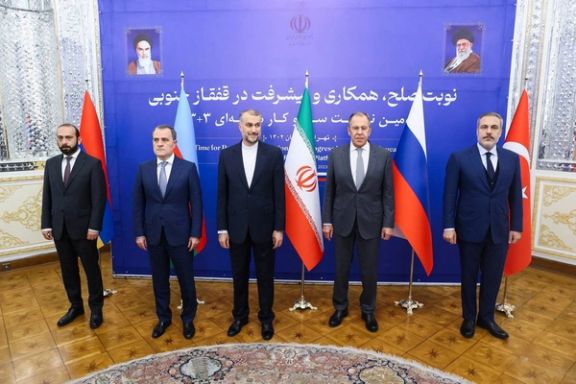
Iran has close ties with Armenia, which has a more than a three-decade old conflict with Azerbaijan over Nagorno -Karabakh, an Armenian-populated enclave inside Baku's international borders. However, Yerevan is now seeking wider international support and is distancing itself from Moscow, perhaps because Russia is engrossed in its invasion of Ukraine. During the past months, several Iranian military commanders and politicians warned Azerbaijan not to attack Armenia and avoid closing Iran's gateway to Europe via a narrow strip of land connecting Iran via Armenia to Russia and Europe. Iran has also long warned Azerbaijan about its close military relations with Israel, which is the Baku’s main arms supplier.
Tehran's inaction in the face of Azerbaijan's offensive was quite embarrassing for the regime and its military commanders considering months of bragging on IRGC media outlets and social media channels about Iran's swift reaction in case Azerbaijan attacked Karabakh.
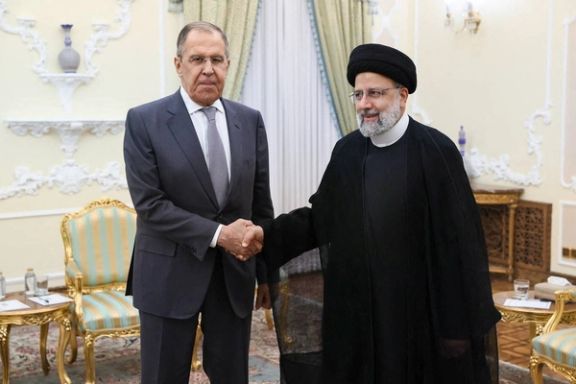
Iran's President Ebrahim Raisi, who met with the foreign ministers in separate meetings, said during talks with Armenia's foreign minister, "Given its strong and influential position, Iran is ready to assist in resolving the existing disputes between Azerbaijan and Armenia."
Turkey's Foreign Minister Hakan Fidan, in a statement posted on the X social media platform, said Ankara welcomed Monday's talks in Tehran and hoped they would "give impetus to normalization and peace processes".
The meeting took place against the backdrop of rising tensions in the Middle East, following the October 7 Hamas attack against Israel. Hamas Killed about 1,400 Israelis and took over 220 as hostages. In the retaliatory attacks, over 5,000 Palestinians have been killed while a ground offensive of Gaza seems imminent.
Russian Foreign Minister Sergei Lavrov said in Tehran that unilateral moves to resolve the conflict in the Middle East can only worsen the situation and the United States has not offered any new ideas on tackling the crisis. "The more we have such 'initiatives" from any one state, the greater in general will be the risks, the danger of the conflict growing," he said.
Urging Immediate steps to arrange a ceasefire, resolve humanitarian issues and find a mechanism to work for peace based on the "two state" principle, Lavrov said the United States had halted the work of the Middle East "quartet" and "for now no other body exists that would be acceptable for all. If (US Secretary of State) Antony Blinken has some sort of bright ideas for this, we are unaware of them." The Diplomatic Quartet, comprised of the United Nations, the United States, the European Union, and Russia, was established in early 2000s to mediate the Israeli–Palestinian peace process.
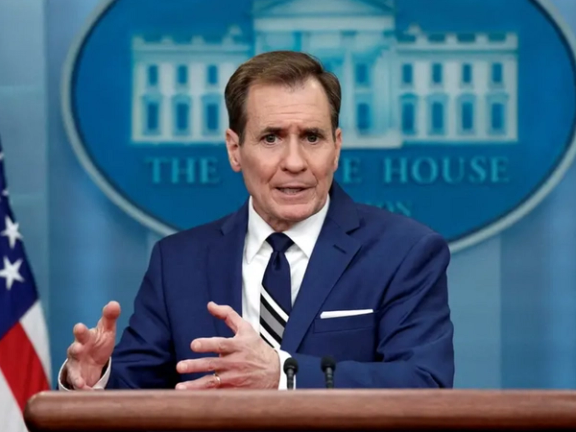
The White House on Monday said Iran was in some cases "actively facilitating" rocket and drone attacks by Iranian-backed proxy groups on US military bases in Iraq and Syria.
Speaking about the uptick in Iranian proxy attacks on US forces, White House spokesman John Kirby said that President Biden has directed the Department of Defense to brace for more and respond appropriately.
He reiterated that there had been an uptick in such attacks over the last week, and especially over the last few days, but the US would not allow threats to its interests in the region to "go unchallenged."
He said the United States believed these groups were supported by Iran's Islamic Revolutionary Guard (IRGC) and the Iranian government, which was also continuing to support the Hamas and Hezbollah militant groups.
"We know that Iran is closely monitoring these events, and in some cases, actively facilitating these attacks and spurring on others who may want to exploit the conflict for their own good, or for that of Iran," he said.
There has been an increase in attacks on U.S. forces since the conflict in Israel intensified on October 7 when militants from the Palestinian group Hamas launched a brutal attack on southern Israel.
"We are deeply concerned about the potential for any significant escalation of these attacks in the days ahead," Kirby said.
Biden has sent naval power to the Middle East in the past two weeks, including two aircraft carriers, other warships and about 2,000 Marines.
"We know Iran's goal is to maintain some level of deniability here, but we're not going to allow them to do that," Kirby said. "We also are not going to allow any threat to our interests in the region to go unchallenged."